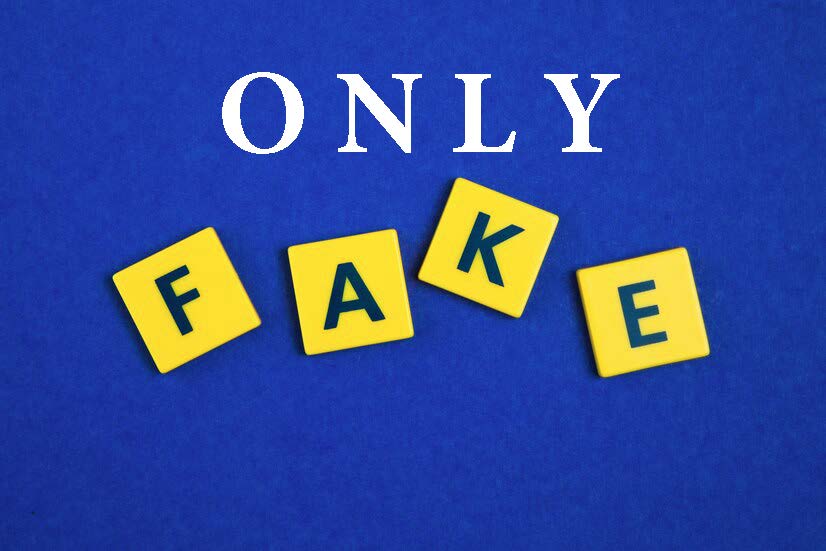In recent years, the internet has been buzzing with discussions about a new phenomenon called OnlyFakes. This term has been making waves across social media platforms, forums, and news outlets. But what exactly is OnlyFakes, and why is everyone talking about it? In this article, we will delve into the origins, implications, and future of this intriguing trend.
What is OnlyFakes?
OnlyFakes is a term used to describe fake or counterfeit accounts and content on social media and subscription-based platforms, particularly those that mimic the popular site OnlyFans. These accounts and content are created to deceive users into thinking they are following or subscribing to genuine creators. The aim can vary from financial gain through fraudulent subscriptions to spreading misinformation or conducting phishing attacks.
The Origins of OnlyFakes
The concept of OnlyFakes isn’t entirely new. The internet has always had its share of imposters and scammers. However, the rise of OnlyFans, a platform where creators can monetize their content through subscriptions, provided a lucrative target for scammers. With millions of users and creators on OnlyFans, the temptation to exploit this popularity was too great for fraudsters to resist.
How OnlyFakes Operates
OnlyFakes operates by creating profiles that closely resemble those of popular creators. These fake accounts use stolen photos and videos, often obtained through hacking or unauthorized downloads, to build a convincing facade. They then lure unsuspecting users into subscribing, only for the users to realize later that they have been duped.
The Subscription Trap
One common tactic is the subscription trap. Fake profiles offer seemingly exclusive content at attractive prices, enticing users to subscribe. Once the payment is made, the content provided is either stolen from genuine creators or is of significantly lower quality than promised.
Phishing and Data Theft
Another alarming aspect of OnlyFakes is phishing. Fraudulent profiles can trick users into sharing personal information, such as credit card details or login credentials. This information can then be used for identity theft or sold on the dark web.
The Impact on Genuine Creators
The rise of OnlyFakes has a detrimental impact on genuine creators. These creators rely on their content to make a living, and the proliferation of fake accounts can lead to a loss of trust among users. When users fall victim to scams, they may become wary of subscribing to any account, affecting the income of legitimate creators.
The User Perspective
For users, the experience of being scammed can be both frustrating and disheartening. Many users subscribe to OnlyFans and similar platforms to support their favorite creators and access unique content. When they realize they have been deceived by OnlyFakes, it can lead to a loss of faith in the platform and the creators they wish to support.
Legal and Ethical Implications
The existence of OnlyFakes raises several legal and ethical questions. From a legal standpoint, creating fake profiles and engaging in fraudulent activities is illegal. However, the global nature of the internet makes it challenging to track and prosecute offenders. Ethically, the practice of creating OnlyFakes is deeply problematic, as it undermines the trust and integrity of online communities.
Combating OnlyFakes
Combating the rise of OnlyFakes requires a multifaceted approach involving platform operators, creators, and users.
Platform Security Measures
Platforms like OnlyFans need to implement robust security measures to detect and eliminate fake accounts. This includes using advanced algorithms and AI to identify suspicious activity, as well as providing tools for creators to protect their content from unauthorized downloads and sharing.
Creator Vigilance
Creators also play a crucial role in combating OnlyFakes. They need to be vigilant about their content and regularly check for fake profiles impersonating them. Reporting these accounts to the platform operators can help in their swift removal.
User Awareness
Users need to be aware of the risks associated with it. This includes being cautious about the profiles they subscribe to and verifying the authenticity of creators before making any payments. Users should also be educated about the signs of phishing and how to protect their personal information online.
The Role of Technology
Advancements in technology can aid in the fight against it. Blockchain technology, for instance, can provide a secure way to verify the authenticity of digital content and creators. AI and machine learning algorithms can help in identifying and flagging fake accounts more efficiently.
The Future of OnlyFakes
As long as there is money to be made, the phenomenon of OnlyFakes is likely to persist. However, with increased awareness and better security measures, it is possible to mitigate its impact. The future will see a continuous battle between scammers and those working to protect the integrity of online platforms.
Conclusion
The rise of OnlyFakes is a testament to the ever-evolving nature of online fraud. While it presents significant challenges for platforms, creators, and users, it also underscores the importance of vigilance and security in the digital age. By understanding the mechanics of OnlyFakes and taking proactive steps, we can protect ourselves and our online communities from falling prey to these scams.
FAQs
Q: What is the main purpose of OnlyFakes?
A: OnlyFakes primarily aims to deceive users into subscribing to fake accounts for financial gain or to steal personal information.
Q: How can users identify OnlyFakes profiles?
A: Users can look for signs such as too-good-to-be-true offers, lack of verified status, and inconsistencies in the content or profile information.
Q: What should I do if I encounter an OnlyFakes profile?
A: Report the profile to the platform operator and avoid engaging or making any payments to the account.
Q: Can OnlyFakes impact genuine creators?
A: Yes, OnlyFakes can lead to a loss of trust among users, negatively affecting the income and reputation of genuine creators.
Q: How can platforms combat OnlyFakes?
A: Platforms can implement advanced security measures, use AI to detect suspicious activity, and provide tools for creators to protect their content.







